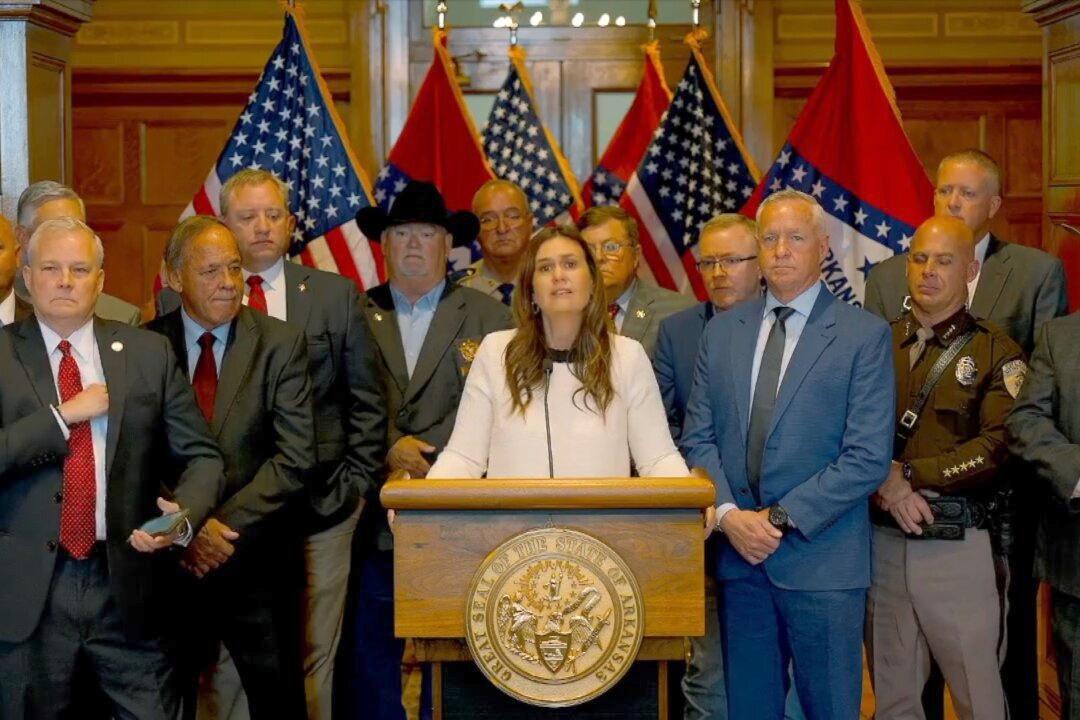Arkansas Gov. Sarah Huckabee Sanders said she would deploy dozens of Arkansas National Guard soldiers to assist Texas in its efforts to secure the southern border.
“President Biden opened our southern border to an invasion of illegal immigrants, drugs, and human trafficking,” Ms. Sanders said in a statement on Tuesday. “I’ve seen the crisis our President created, and I know the incredible men and women of the Arkansas Guard can help supplement Texas’ efforts to keep our border secure.”





